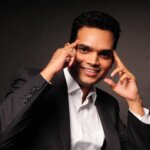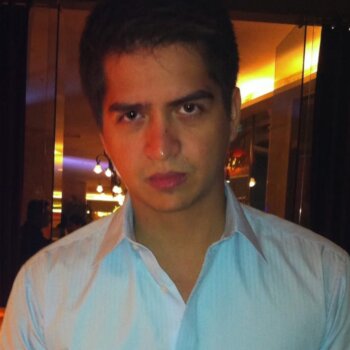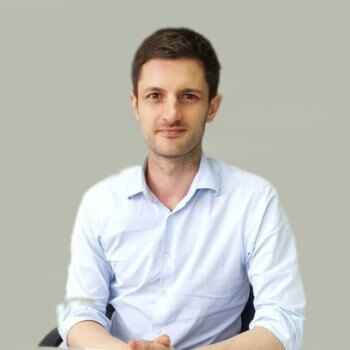(This is one in a series of articles and interviews about conscious business leadership, which is about leaders creating and promoting workplaces of understanding, honesty, and compassion, for the betterment of their employees, their community, their organization and world.)
How do you grow a company from a single sushi restaurant in 1997 to a public company comprising a restaurant enterprise running over 200 outlets across multiple countries and brands, a charitable non-profit organization, and a financial services arm? Good leadership likely plays a role in it.
Here is Part Two of the conversation I had in August with Douglas Foo, the founder and Chairman of Sakae Holdings (http://www.sakaeholdings.com/), and the recipient of too-numerous-to-list business and philanthropic accolades and awards, including the Public Service Star Award in Singapore and the Eisenhower Fellowship in the U.S.A. in 2013.
So, we just spoke a bit about how you consider your training department to be almost like crucial, an investment, a necessity. But that’s not normal in the restaurant industry, right?
Oh, it’s completely the opposite. So, if you look at us, probably we’re called an extremist, because we focus so much on that. Because as far as this industry is concerned, it is cutthroat, and it’s always about how do you cut the cost. But, so having a startup in an Asian Financial Crisis, and trying to have a training department, that sounds like a formula for suicide.
But we did that. Because our dream was to build a global brand. Our dream was building people while we do that on the journey. So, that’s why the emphasis to do that.
And over the years, we have actually seen great results from the work that we have actually put in since day one in terms of building the foundation, learning – even myself, every year, I try to go for certain courses. I’m trying to go to do something that is sometimes not similar, because you not just learn from your industry, you can always learn from another industry.
Because there is a lot of things that –– innovations. How did the industry adopt some of those different thinking? That’s why, right now, there are a lot of talk about using 5S, Lean Management, Six Sigma into the service industry. But these are theories that have been used in the manufacturing industry for the longest time. But they are all applicable.
So, why did we take so long to start looking at that? But as far as Sakae is concerned, we started looking at those at a much earlier, much earlier time because we believe that if we are going to bring ourselves up to the global stage, you need to be looking. You must really open your mind.
Global mindset. So, tell us more about the Eisenhower Fellowship that you did for this global mindset shift that you had.
Right, so the Eisenhower Fellowship was a transformation experience more for me because during those two months that I was in – because the requirement is that you must be there two months. You can’t come back. And during the two months, you can tailor-make a program.
So, I studied two things there: one, how to build global brands in a sustainable matter. Because today, who are the global brands? Coffee: Starbucks. Hamburger: McDonald’s. Fried chicken: KFC. Pizza: Pizza Hut. If you put these four person on this platform now, name a brand from this part of the world that can be in the same league. And you realize that, “Oh, so there’s not much of knowledge or how to make that”.
So, where is it? In the U.S. So, when I went for the Eisenhower Fellowship, I took an opportunity to study how to build global brands in a sustainable manner because eventually, that’s the dream of building Sakae to be the top brand we call “Drink sakae, eat sushi. Sakae Sushi”. That’s the brand we are talking about.
So, anywhere in the world, people can accept. But, how do we embark on the journey? So, we are doing something that’s quite different. It’s a brand building project.
Many people look at it as an F&B, hospitality. Yes, it is. But beyond that, there’s a higher purpose. It’s about building a brand. A brand with a promise. A brand with a value.
So, the value system that we adhere to very strongly to our heart is we’re doing something that we will serve to our own parents, we will serve to our own children.
So, there are, of course, a lot of benchmarking, a lot of standard operating procedures that all organizations go through. You can train the people, but if people don’t do it from here [your heart], you know that you need to have a monitor, a monitoring system.
But we think otherwise. We want to build a brand with a soul in it. And this soul comes from all the heart from the people that firmly believe in the values that we have created in the Sakae culture.
Right, so you said you’ve studied two things at the Eisenhower Fellowship. The other was?
The other was the capital markets. All enterprises, at a certain stage, beyond just management skills and business model, you will find it. You will need the capital mechanism to come in.
So, today, if you look at India, 1 over billion. China, 1 over billion. ASEAN, 7 hundred over million. You add that up, that’s almost half the world’s population, and with ever increasing in the consumer space. That’s business opportunity.
But look at Alibaba, great company, operating in Asia. When they did IPO, where did they go?
America.
Exactly. So, wouldn’t be there an opportunity for the financial hub in this part of the world? What are the financial people thinking?
So, I went to meet a lot of private equity people, business officers, family officers, and we eventually led to the setup of Sakae Corporate Advisory. Because we saw an opportunity that there are a lot of opportunity for funds to come to this part of the world, but they are looking at where should they put it, how should they put it, who should be assisting to do the introduction?
And through this network, we saw a huge opportunity. Sakae Corporate Advisory today, is a member of the Emerging Market Private Equity Association, which is a large private equity association with all the top brand names of the PE funds. But we having just set up a few months, we became a member there because of the network that we’ve built during the Eisenhower Fellowship that I actually attended.
And so, we are actually helping, using this platform to help enterprises leap frog to the next step, both in terms of not just helping them to do the funds, but looking at the model, helping on the leadership, guiding on some of the management expertise, giving, throwing some crazy ideas. Because sometimes you don’t come from the industry, you’re not blind. You come out and you ask a very innocent question and that can spark off some thought process. And that sometimes, could be that simple.
Because sometimes, when we take things and try to put in so much theories that it became too complicated, make it too complex. But if you take a person out there, and the person just innocently ask, “Why did you do that?”, and then all this thing unravel, and then, suddenly, voilà! The solution is there. And you have something that you can bring into the market – a product or service that can help the company to move onto the next side.
So someone, if I am someone, or I’m a company, that is actually going towards IPO, I would benefit from your corporate advisory group’s impact or consultation. How does that work?
Yeah, it’s not just a feedback consultation but more than that, we can introduce them, we actually look at the business model, we look at the potential growth, and then we know who we should be introducing the person to. Then they’ve got a network of people there, because I sit on different boards and different organizations, different industries. So, over the years, I’ve got a lot of IPs in here.
And now is the time that I would like to utilize these IP to do something that is meaningful, that is helpful.
I see. Great. And you’ve already some companies that you’re looking at?
Yes.
And how do you decide for you which one is in and which one, “No, I can’t consider this one”? How do you decide that?
Well, for a start, if you look at our announcement in January, we’ve actually signed on a company called Q & M Dental Group. So, they are in the dental practices. So, we actually help them in remodeling different advisory work, and from a 300 million market cap in January, today, they’re at 6 hundred over, 7 hundred million market cap.
So, that’s the kind of work that we are able to do in terms of helping to build value, and to extract the value, and bringing them onto a global branding journey.
Click here to view the video.






























